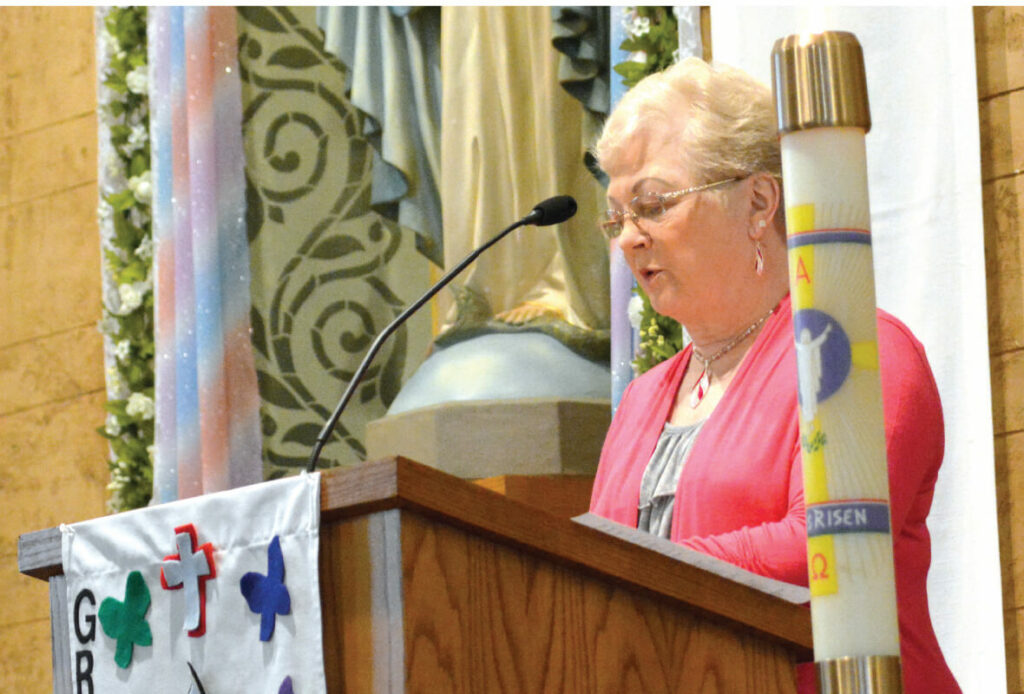
Jesus’ parable of the sower is prophetic. It predicts that Jesus’ word will yield a thirty, sixty, and hundred-fold harvest. This yield, however, does not happen in the gospel narrative. When Matthew’s gospel ends, Jesus is commissioning his disciples to go and make disciples of all nations (24.19). The seeds have yet to grow and yield.
Within the gospel narrative Jesus’ teaching fall on paths, rocks, and weedy patches where the seeds fail to flourish. The disciples who flee when Jesus is arrested are like the seeds on the path that the birds eat. They vanish.
Peter, whose name means Rock, is like the rocky ground where the seed grows up quickly but gets scorched for lack of soil in which to root. Peter is first and enthusiastic in affirming Jesus as messiah but also first in rejecting Jesus as a suffering messiah and denying he knows Jesus during his trial.
The rich young man of Matthew 19.16-23 is like the seeds sown among thorns. The lure of wealth spoils his yield.
Before his death and resurrection Jesus’ word doesn’t take deep root, even among his disciples. However, after the community experiences his risen presence, the words Jesus taught or sowed in the lives of his disciples do take root.
His disciples begin to preach and spread the good news of his teaching and his resurrection from the dead.
- Which kind of ground are you most like?
For 40 years Christians gather in communities to hear and live the teachings Jesus sowed in his preaching. Then as the eyewitness disciples are martyred or die of old age, evangelists write down and arrange oral traditions on the broad outlines of Jesus’ life—his public ministry, death, and resurrection.
On parchment these new tellings of Jesus’ words and deeds can travel through time far from the field of their original sowing. Each of the four gospels takes Jesus’ story to his resurrection. Up until this final chapter, his disciples remain in the dark about who Jesus is.
In this way the disciples serve as realistic role models for new hearers of the written word. The disciples mistake who Jesus is and don’t stand by him. They are not yet the powerful witnesses they become in the light of Easter and the fire of the Spirit. In the gospels, they have not yet turned their lives over to the preaching of the gospel.
The sower parable offers a prophetic vision of the gospel that reaches beyond Jesus’ resurrection to the thirty, sixty, and hundredfold harvest Jesus’ disciples later bring in. The sower parable promises that despite the too-traveled, rocky, and weedy ground, the seed Jesus sows will yield. It is a prophetic parable of promise. The harvest is among the hearers of Matthew’s gospel in every generation, today among us.
- What has hearing the gospel yielded in your life?
The sower parable comes with commentary in Matthew about why Jesus teaches in parables. It is his disciples who ask Jesus why he clothes his teachings in imagery and metaphor. In all three synoptic gospels Jesus’ answer is the same. Insiders can know the secret to the kingdom but outsiders must hear in parables because otherwise they will see and not perceive, hear and not understand.
Matthew echoes the irony in God’s call to Isaiah: “Make the mind of this people dull, and stop their ears, and shut their eyes, so that they may not look with their eyes, and comprehend with their minds, and turn and be healed” (Isaiah 6.10).
Matthew recognizes that Isaiah’s irony touches on the mystery of why some hear and respond to the word of God and some don’t. It touches on the mystery of why any of us didn’t hear yesterday but do today, why we thought we had a crop failure rather than a writing windfall. It touches on the mystery of grace. Matthew ends this commentary section by blessing those whose eyes see and ears hear in Jesus what generations of prophets have longed to see and hear but didn’t.
- What do you see and perceive today that you missed as a younger person?
- When has a new book or sermon opened your mind to a more fruitful way of living as a Christian?
The explanation of the parable focuses on the ground where the seed falls. Earth can do nothing about where people walk, where rocks lie, or where thistles grow. The earth simply receives plowing, softening rain, sowing, and yields the harvest.
Fertile earth is a metaphor for human receptivity to God’s word. The parable gives the ground the human characteristic of being able to participate in cultivating the harvest, of being receptive to God’s word.
As a parable of promise, the parable of the sower looks beyond the failures of discipleship narrated in the gospel to the post-Easter community whose members recognize God’s Son in the risen Jesus and who live in the Spirit. They hear and understand the good news that was hidden in Jesus in his lifetime.
To celebrate the centennial of my home parish, we sang a Litany of the Saints that included by name all 250 people buried in our cemetery, part of the hundredfold harvest Jesus’ parable promises.
- What words from the gospel are growing in your life?
- What word that you hear in the gospels do you want to plant and grow in your life?

